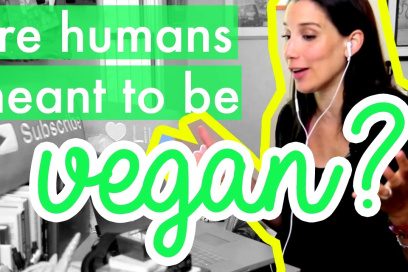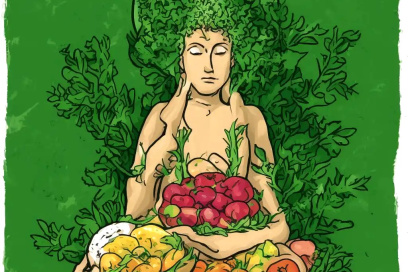Are you confused as to whether switching to a vegan diet may benefit both your health and environment, or are you an unwavering meat-eater who cannot fathom enjoying juicy burgers and tender steak sans animal protein? Unfortunately, the longstanding argument between vegans and meat eaters regarding which is superior has never been resolved; compelling arguments exist on either side that can sway one either way. We aim to illuminate both schools of thought so you can make an informed decision when making this important change in lifestyle.
As we explore the relative health and environmental advantages of plant-based foods versus animal protein for your health and lifestyle choices, as well as their respective environmental footprints, we will notice an impressive surge in meat alternatives that steers towards more sustainability on earth. Of course, we must not forget moral and ethical dilemmas associated with animal farming versus producing plant-based foods; thus in this debate we aim to broaden your horizon by offering comprehensive information regarding science, ethics and popular myths so you may make an informed decision that safeguards both your own health as well as Mother Earth!
I. The Pros and Cons of a Vegan Diet
As soon as you consider all the implications of adopting a vegan diet, it quickly becomes evident that numerous factors must be taken into consideration. While initially it may appear straightforward, plant-based eating choices can have major ramifications on one's health and wellbeing.
Benefits of Veganism
On one hand, there is substantial evidence to suggest that vegans and vegetarians can reap significant health advantages by adopting diets composed primarily of plants. Multiple scientific studies have highlighted a connection between plant-based diets and lower rates of chronic illnesses like heart disease, diabetes, certain forms of cancer, obesity, and hypertension. What accounts for this phenomenon? Well, it appears one major reason is due to plant-based diets being naturally lower in saturated fats and cholesterol while providing more dietary fiber, antioxidants and essential nutrients essential for good health.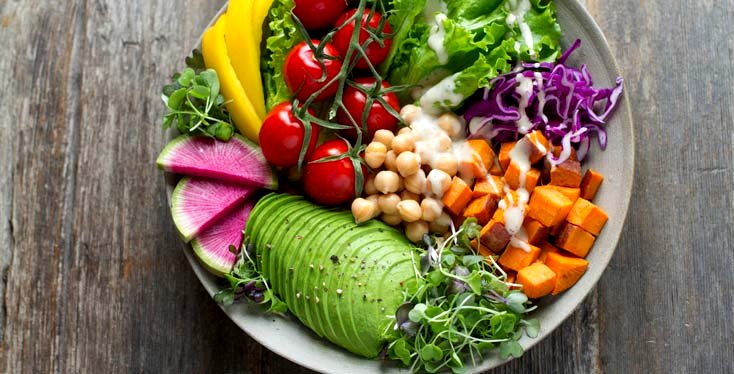
Potential Downsides of Veganism
However, one must keep in mind the potential downsides to veganism as well. One key concern for many individuals who take this route is nutritional deficiencies which could arise as a result of this lifestyle choice. As animal products provide many of the essential vitamins and minerals required by humans, anyone following a vegan diet must be mindful to choose plant-based options which will give their bodies what it needs - complete proteins, vitamin B12, iron, and calcium are just a few examples. Noteworthy is also that certain groups, such as young children, pregnant/breastfeeding women, and older adults are particularly at risk of nutritional deficiency and should take extra steps to ensure they receive all their body needs.
Practical Considerations
Finally, there are practical considerations when it comes to cost and availability of plant-based foods. While not as expensive as some might believe, vegan options can still be more costly than their meat-based counterparts and harder to locate in certain locations or restaurants. Anyone opting for a plant-based diet must be aware of its costs associated with making informed food choices that ensure they're meeting all their nutritional requirements.
Although veganism certainly offers its share of advantages and disadvantages, before making any major dietary adjustments it would be wise to carefully assess any options and make an informed decision that ensures you receive all of the essential vitamins and nutrients required to remain healthy and happy.
II. The Pros and Cons of a Vegan Diet
Recently, there has been an exponential surge in the availability of substitutes for meat products, from Beyond Meat and Impossible Foods to plant-based burgers and sausages available across fast-food chains and restaurants. Advocates laud these meat alternatives for their improved health and environmental benefits over traditional alternatives.
Meat Alternatives
Meat alternatives typically derived from plant-based sources of protein such as pea protein, soy protein or wheat protein attempt to replicate the taste, texture and appearance of meat products while simultaneously addressing ethical, environmental, and health concerns associated with animal farming.
However, meat alternatives do have some detractors. Critics argue that these options aren't necessarily healthier as they could contain sodium, saturated fat and other additives when heavily processed; unlike nutritionally dense whole food sources of protein.
Sustainably-sourced Meat
One trend gaining steam in the industry is sustainably-sourced meat products. This strategy seeks to minimize environmental footprint by employing ethical and eco-friendly agriculture methods for production.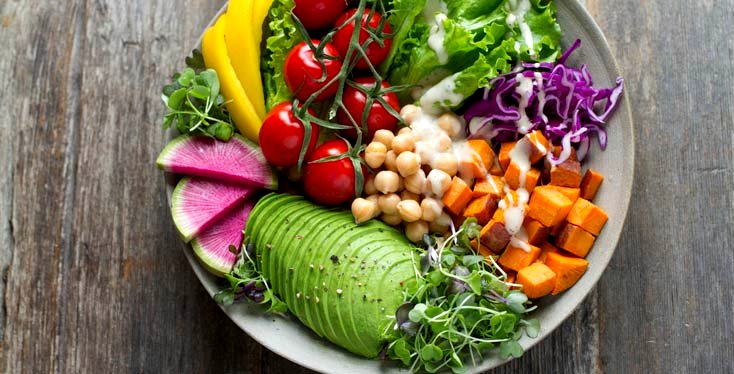
Sustainably-sourced meat comes from farms that prioritize animal welfare, feed their livestock a natural diet and utilize regenerative cultivation techniques that promote soil health and biodiversity. While these products may cost more than traditional options, proponents argue that their environmental and moral benefits make up for any additional cost.
Conclusion
To summarize, meat alternatives and sustainably-sourced products offer many options to those looking to reduce their meat consumption or lead more sustainable lifestyles. It is crucial that consumers carefully read labels and conduct their own research when considering these options, while no single diet or food choice can guarantee good health - balance is the key!
III. "The Rise of Meat-alternatives and Sustainably sourced Meat Products"
At the core of any discussion about veganism or meat consumption lies ethical considerations surrounding animal farming and agriculture. Deciding between adopting a compassionate vegetarian or vegan diet or continuing with meat consumption is a deeply complex moral choice with multiple considerations to take into account.
Opponents of Meat Consumption
Animal farming's ethical ramifications are multidimensional and can be assessed through numerous lenses. Opponents of meat consumption argue that animal agriculture is an inherently destructive industry that is both unsustainable and cruel, leading to unjust treatment of animals. These organizations specifically examine how animals are treated, the environmental impact of industry practices and underutilization of valuable resources. Many critics contend that modern farming practices reduce animals to mere commodities, contributing significantly to climate change and other environmental crises. Furthermore, some criticize large-scale farming operations' treatment of animals as inhumane and unethical; many point out the physical and psychological discomfort suffered by caged and mutilated animals in large operations.
Supporters of Meat Consumption
On the contrary, supporters of meat consumption claim that animal farming can be conducted ethically and sustainably when implemented appropriately. They cite examples such as using regenerative practices for soil regeneration, humane slaughtering methods, prioritizing animal welfare concerns, using smaller community farms with reduced footprint, which promote soil health and biodiversity for environmental benefits, using smaller-scale farms with community ownership etc. Critics of veganism point out how properly managed grazing systems have a positive impact on environmental issues by improving soil quality while sequestering carbon emissions etc.
The Ethics of Food Production
At its core, veganism versus meat consumption ethics defy simple categorization due to their subtleties and complexity, necessitating substantial reflection. Food production ethics go well beyond veganism vs meat consumption alone - to make an informed decision requires conducting proper research, scrutinizing labels for ethical labelling practices, supporting sustainable farming practices as well as considering personal health needs, ethical beliefs and preferences among other considerations when making a choice between the two extremes.
"The greatest threat to our planet is the belief that someone else will save it."
Conclusion
Ultimately, the ethical considerations surrounding animal farming and agriculture remain complex and multifaceted, necessitating further research and reflection. A compassionate vegetarian or vegan diet or continued meat consumption is a deeply personal decision with significant moral implications that must be carefully considered.
IV. The Ethics of Veganism vs Meat Consumption
Veganism versus meat consumption presents its own complex set of challenges and advantages that one must carefully weigh when making their choice. Both options offer essential nutrition to the human body, but each poses unique complications and difficulties.
Selecting between a flesh-eating or plant-based diet comes down to personal choice and individual health considerations. Care should be taken when exploring this subject further and seeking medical advice; and understanding all its intricacies.
Once you've decided between vegan or meat-based eating plans, there are numerous resources at your disposal to support either choice. Vegans can benefit from online communities, recipe blogs and cookbooks dedicated to plant-based living; those leaning toward meat consumption or animal products can consult guides that detail ethical farming practices and sustainability.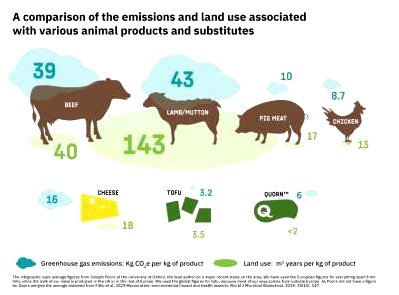
No matter which diet you follow, informed decision making regarding food consumption cannot be overemphasized. A well-rounded and varied diet consisting of fruits, vegetables, whole grains and low-fat proteins will provide your body with essential nourishment and sustenance. By understanding both pros and cons associated with veganism compared with meat consumption you can make educated and informed choices which promote your health while protecting the environment and animal welfare.
Sustainability in Food Choices
Sustaining life on Earth is of paramount importance to many individuals, and there are various decisions they can make to support its sustainability in their life. One effective choice that you can make to promote it is opting for food sources that are sustainable and ethical while still satisfying your taste buds with delectable yet nutrient-rich options.
Learn more at NCBI about veganism vs meat consumption ethics.Conclusion
Studying the relative merits and drawbacks of veganism and meat consumption reveals that there is no universally superior solution when it comes to either approach. While adhering to a strictly vegan diet might have potential health and ethical advantages, as well as requires meticulous planning in order to incorporate all essential nutrients; similarly meat consumption provides our bodies with essential nutrition if done in moderation and source responsibly.
Decisions on whether to adopt either a vegan or meat-based diet should ultimately depend on personal preference, ethical considerations and health requirements. No matter your chosen path of consumption, however, it remains imperative that adequate research be conducted into sources of sustenance to promote ecological viability, animal wellbeing and overall bodily wellbeing.
Sustainable living goes beyond evaluating individual eating habits; it also involves supporting ethical and sustainable farming and production practices of food products. By purchasing merchandise from corporations who prioritize sustainable practices and ethical treatment of animals, one can help maintain a conducive and healthy environment while supporting animal welfare.
At its core, eating healthily involves maintaining a diverse and well-rounded diet full of whole foods, fruits, and vegetables as well as protein sources - no matter whether veganism or meat eating is preferred - in order to make informed choices and practice mindful awareness regarding how they impact environmental sustainability and animal welfare.


